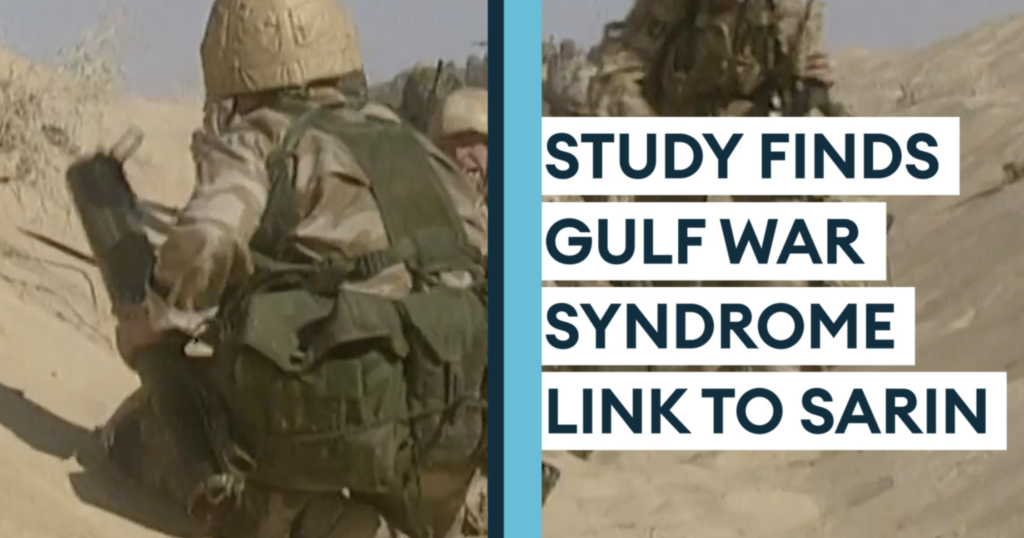Gulf War Syndrome: Underlying cause is found, study claims
The Gulf War Syndrome affects veterans who served in the 1991 war. Rosie Laydon11th May 2022 at 5:49pm

An American study claims to have discovered the underlying cause of the so-called Gulf War Syndrome.
Researchers from the University of Texas Southwestern Medical Center in Dallas conducted a genetic study that led to the discovery of genetic susceptibility to the sarin nerve gas as the cause of the illness.
The scientists found sarin to be particularly prevalent among service personnel with increased genetic susceptibility to it.
- ‘It became very real’: Serving on RFA Argus during the First Gulf War
- What it was like to be a Tank Troop Leader in the First Gulf War
- Remembering the Gulf War: Key facts and figures about the conflict
The Gulf War Syndrome is a collection of unexplained and chronic symptoms that affect veterans who served in the 1991 Gulf War.
More than 50,000 British troops served in the war and helped to liberate Kuwait from Saddam Hussein’s invasion.
In 43 days of Operation Desert Storm, 47 British service personnel were killed, and in the months and years that followed many more reported feeling unwell.

Kerry ‘Spike’ Fuller was 26-years-old when he was deployed and, suffering muscle and joint pains, he ended up in hospital with chronic fatigue while he was still in the Gulf.
After returning to Germany, just six months after his first hospital stay, he was re-admitted a second time, again for chronic fatigue.
“I started to question then whether it could have anything to do with my service,” he told Forces News.
Retired RAF Mover Fuller left the Royal Air Force in 1996 and suffered a stroke in 2004, aged just 40.
“There’s no evidence to support anything. Their hands were tied, basically, and it’s a case of two paracetamol and crack on, sort of thing,” he added.
In the years that followed the war, governments and scientists disagreed about what was causing serving personnel to suffer from Gulf War Syndrome and whether it actually existed.
Since 2005, the Government has accepted the use of the term ‘Gulf War Syndrome’ as an umbrella term.
A Ministry of Defence (MOD) spokesperson said: “We are indebted to all those who served our country in the Gulf wars and have already sponsored significant research into the effects of this conflict on veterans.
“We continue to monitor and welcome any new research that is published around the world and financial support is available to veterans whose illness is due to service through the MOD War Pensions and the Armed Forces occupational pension schemes.”
Cover image: Trinity Mirror/Mirrorpix/Alamy Stock Photo.
